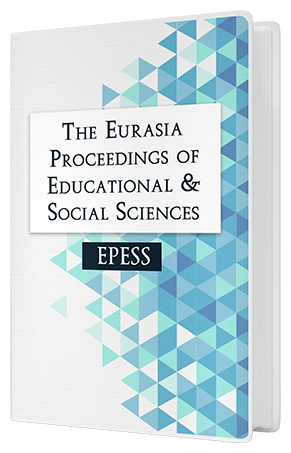Analysis of the Data on School Principals in the TALIS 2018 Country Note Reports in the Context of the PISA 2018 Results
DOI:
https://doi.org/10.55549/epess.1381981Keywords:
TALIS 2018, PISA 2018, International surveys, OECD countries, School principalsAbstract
A vast amount of research has been conducted to investigate the effects and roles of educational leaders on school outcomes using data from international studies. To get a better understanding of the relationship between educational leaders and school outcomes, evaluating international studies together may offer more comprehensive suggestions for educational policies. The purpose of this paper was to examine the data on school principals in the TALIS 2018 country note reports in the context of the PISA 2018 results in order to have a broad perspective on the characteristics of school principals as educational leaders. A document analysis was performed on data derived from the TALIS 2018 country note reports of eight OECD countries and Türkiye, and the collected data was subjected to descriptive analysis. At the end of the data analysis, it was revealed that countries that had high success in the PISA results generally had positive values in the TALIS results. It was shown that school principals in the countries ranked high in the PISA have generally more work experience as principals and are more satisfied with their salaries. In addition, their participation in training programs or courses on school management and professional development activities is high. The present study also confirmed previous research, indicating that individuals who have high job satisfaction show high success, thereby ranking high in the PISA results in the context of this study. Our findings indicated that school principals should be encouraged to participate in training to support their professional development.Downloads
Published
Issue
Section
License
Copyright (c) 2023 The Eurasia Proceedings of Educational and Social Sciences

This work is licensed under a Creative Commons Attribution-NonCommercial-ShareAlike 4.0 International License.
The articles may be used for research, teaching, and private study purposes. Any substantial or systematic reproduction, redistribution, reselling, loan, sub-licensing, systematic supply, or distribution in any form to anyone is expressly forbidden. Authors alone are responsible for the contents of their articles. The journal owns the copyright of the articles. The publisher shall not be liable for any loss, actions, claims, proceedings, demand, or costs or damages whatsoever or howsoever caused arising directly or indirectly in connection with or arising out of the use of the research material. All authors are requested to disclose any actual or potential conflict of interest including any financial, personal or other relationships with other people or organizations regarding the submitted work.




